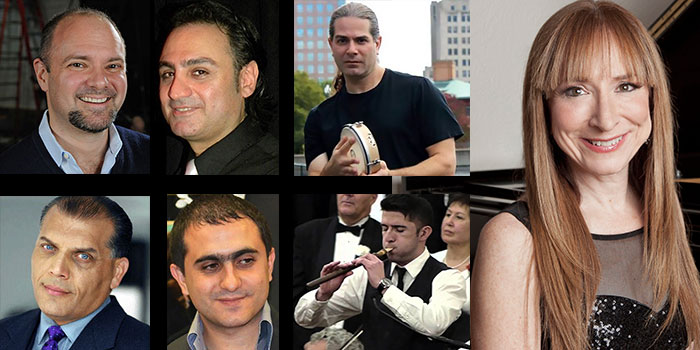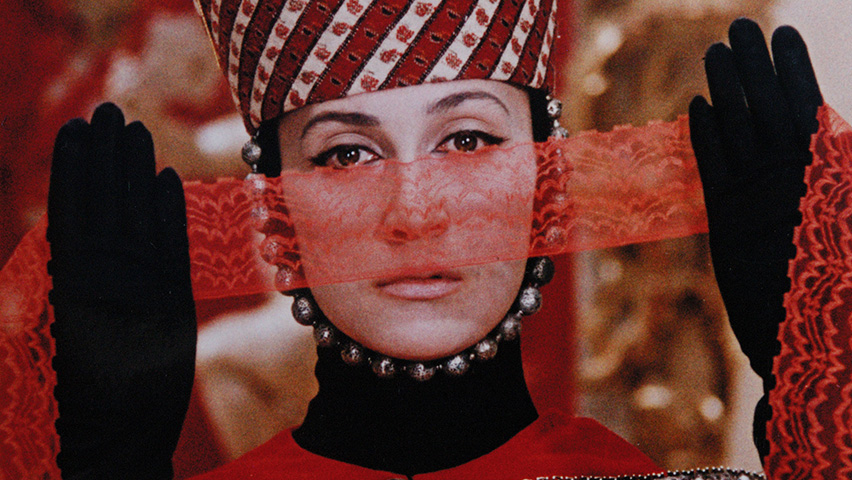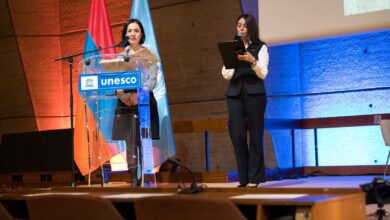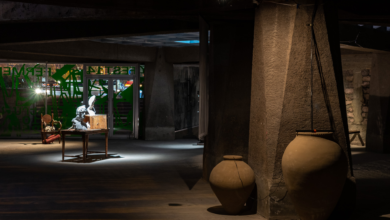Multimedia Production commemorates 100th anniversary of Armenian Genocide

Internationally renowned composer/pianist and RIC artist-in-residence Judith Lynn Stillman has collaborated with Trinity Repertory Company Artistic Director Curt Columbus to present a multimedia production at Rhode Island College as part of an international commemoration of the 100th anniversary of the 1915 Armenian genocide, the Rhode Island College website informs.
Directed by Columbus with original music by Stillman, the production is titled “Armenia 100” and will be held on Wednesday, April 22, at 1 p.m. in Sapinsley Hall.
The performance will feature the world premiere of Stillman’s new composition “When the Music Stopped,” based on Armenian text and poetry translated by Diana Der-Hovanessian.
Armenian performers are film and television actor Armen Garo (“The Departed,” “American Hustle,” “The Sopranos”); baritone Vago Ohanyan; duduk player David Gevorkian; and drummer Michael De Quattro. Visual artist Mher Khachatryan’s artwork will also be featured throughout the performance.
“When the Music Stopped is, in part, a synthesis of the diverse and extraordinary talents of these Armenian artists,” said Stillman. “Armen Garo’s compelling presence, Vago Ohanyan’s rich baritone voice and Mher Khachatryan’s deeply expressive paintings inspired the creation of this work.”
Stillman will also be joined by clarinetist and Professor of Music Ian Greitzer; violinist and Assistant Professor of Music Alexey Shabalin; and kemancha player David Ayriyan.
According to RIC Professor of Political Science Richard Weiner, the events that led up to the genocide of more than a million Armenians and that left thousands more deported began with the defeat of the Ottoman Empire by the Russian Empire in the Battle of Sarikamish in January 1915. Ottoman Armenian soldiers were held responsible for the defeat. Accused of treason, these soldiers were disarmed, redeployed into forced labor camps and killed.
Subsequently, on April 24, 1915, an order was sent out by three political figures known as the “Three Pashas” via telegraph for the systematic extermination of Armenians, Weiner said. The “ethnic cleansing” was to be carried out by “special militias” formed by the pashas and was to take effect throughout the Ottoman Empire.
“Armenian males who had not been conscripted into the military, [as well as] civil leaders, intellectuals, doctors, businessmen and artists, were rounded up and killed,” said Weiner, “while women and children were deported – driven into the Syrian Desert – with little chance for survival. Many abducted or orphaned Armenian children were sold and raised as Turks. The genocide continued into 1917, leaving 1.5 million Ottoman Armenians – over half the population – dead.”
“This is a story that needs to be told,” noted Stillman. “It has been described by some historians as the forgotten Holocaust that inspired Hitler. Remembering and reflecting on this devastating moment in history carries a powerful message: that we must not repeat the deplorable mistakes of the past.”
Remarks at the start of the performance will be given by Armenian dignitaries from the local community – Rhode Island Chief Justice Haiganush Bedrosian and Rev. Fr. Shnork Souin, pastor of Saints Sahag and Mesrob Armenian Apostalic Church in Providence; and Rev. Fr. Gomidas Baghsarian, pastor of Saints Vartanantz Armenian Apostalic Church in Providence.








